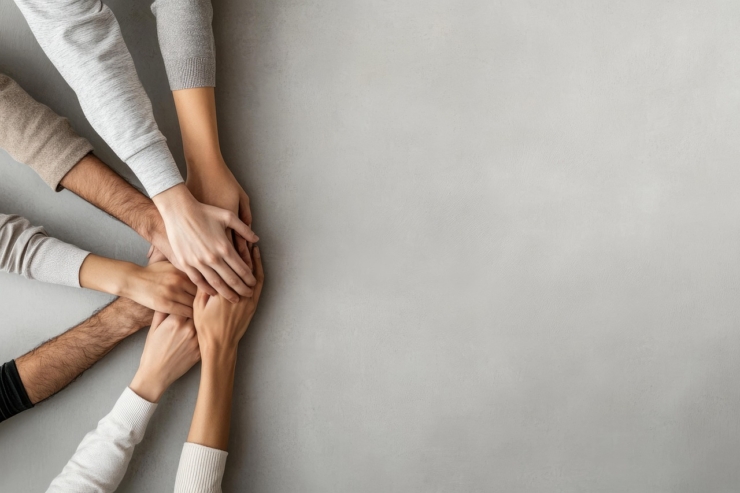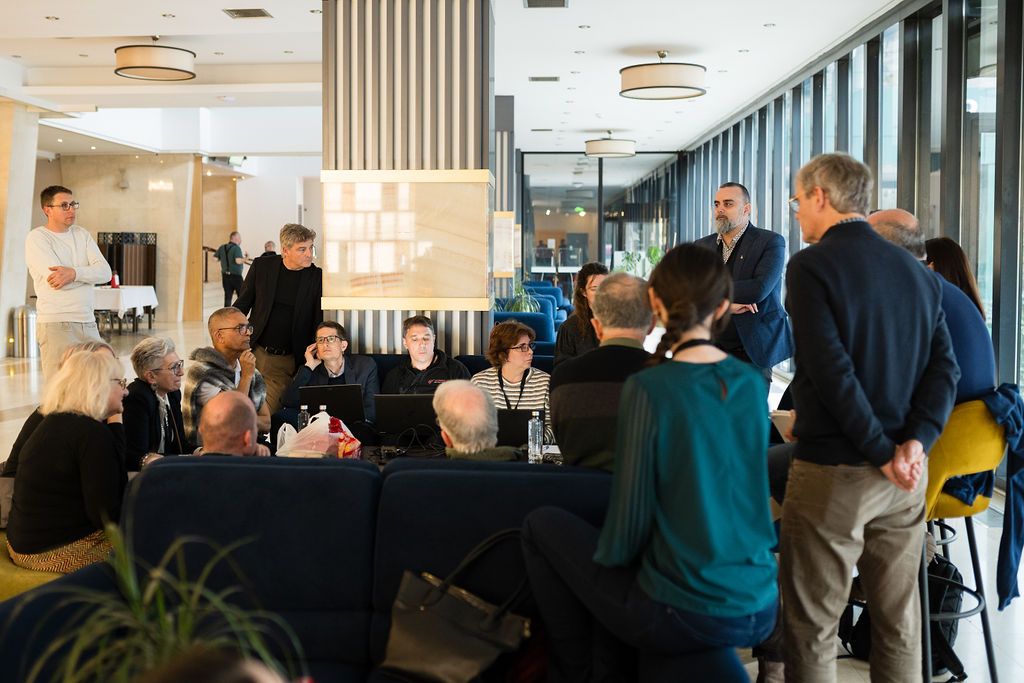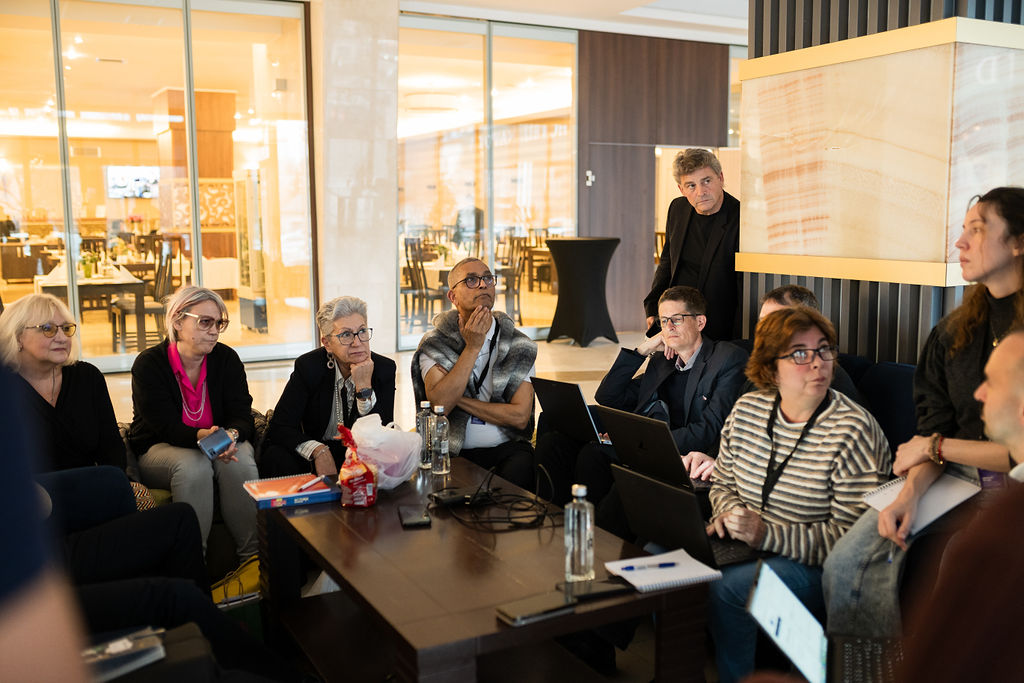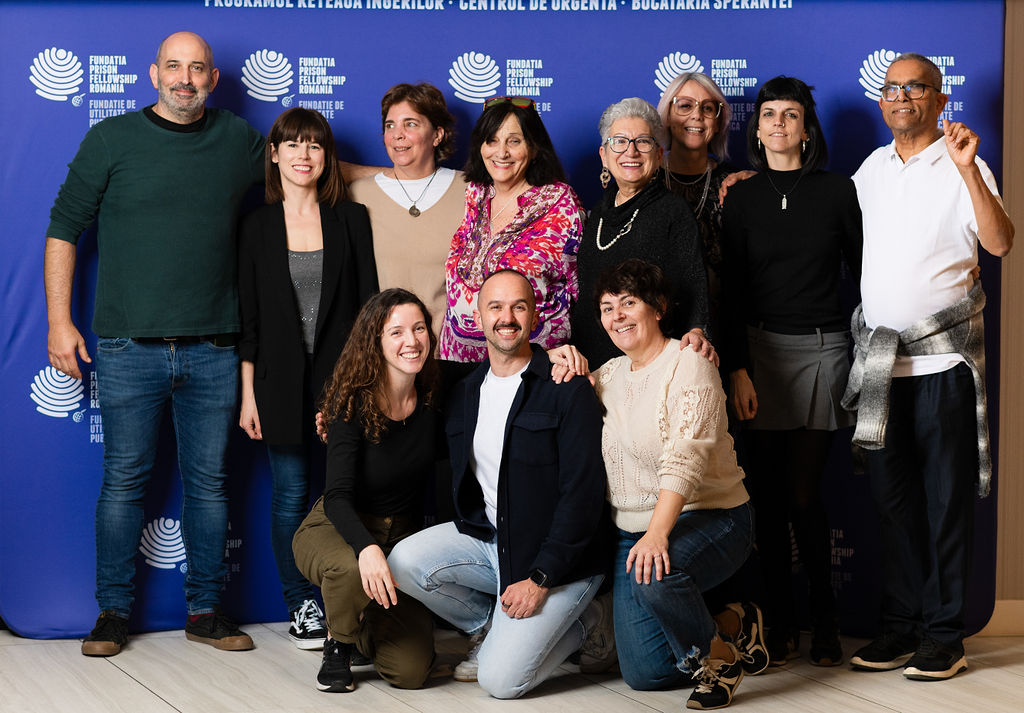Grant opportunities
This group exists to inform and help connect interested NMs to self select towards applying for consortium centred grants. This page is dedicated sharing upcoming opportunities which require collaboration amongst National Ministries.

Group enagement
The PFI Europe and Central Asia Regional Office is happy to receive information pertaining to potential grant opportunities. Hugh will post this information on this web page and send a WhatsApp message to the Grant Group when updates are made.
Those who are interested and think that other NMs would be good partners to consider for a consortium should reach out to one another directly. Contact details are given below.
Group members
Estonia
- Avo Üprus, avo.uprus@crimeless.eu
- Eva Üprus, eva.uprus@crimeless.eu
Czech Republic
- Gabriela Kabatova, gabriela.kabatova@mvs.cz, gabriela.kabatova@mvs.cz
- Zaneta Dvorackova, zaneta.dvorackova@mvs.cz
Germany
- Tobias Merckle, tmerckle@seehaus-ev.de
- Ingrid Steck, isteck@seehaus-ev.de
- Ulrich Weinhold, uweinhold@seehaus-ev.de
- Leonie Espinoza Ruiz, lruiz@seehaus-ev.de
Italy
- Francesco DiTuro, francesco.dituro@prisonfellowshipitalia.it
- Paola Montello, paolamontello@gmail.com
Netherlands
- Hans Barendrecht, h.barendrecht@gevangenenzorg.nl
- Eric de Jonge, e.dejonge@gevangenenzorg.nl
Romania
- Andrei Brie, andrei.brie@pfr.ro
- Ruxandra Nahaiciauc, ruxandra.nahaiciuc@pfr.ro
- Ligia Briscoiu, ligia.briscoiu@pfr.ro
Republic of Ireland
- Philip Larragy, philipl@release.ie
Spain
- Eduardo Cózar, eduardocozar@concaes.com
-
Ariana Rodríguez Castells, ArianaRodriguez@concaes.org
- Isabel Díaz Muñoz, IsabelDiaz@concaes.org
- Silvia Menéndez, madrid@concaes.com
Middle East and North Africa Region
- Roy Moussalli, roymoussalli@pfi.org
Newsfeed
Latest opportunities and progress reports

Due to be submitted by 2nd October 2025
-
- Click on this here: Families and victims
- Click on this here: STP
From Ariana, 9 May 2025
-
- Click on this here: APAC – CLOSED – SUBMISSION COMPLETED 🤩
European Grants, submitted by Ariana, Spain, 27 Mar 2025
As agreed during our meeting in Cluj Napoca, please see Excel file below outlining the various opportunities for participation in European grants. Additionally, I’ve included another document with detailed information (see below).
This is a brief summary of the EU fundable projects we can apply for:
European Grants: Opportunities for Penitentiary Projects
- EU’s Justice, Rights, and Values Fund: Includes the CERV and Justice Programme, designed to promote and defend EU rights and values.
-
- CERV: Supports projects promoting equality, citizen participation, combating violence, and protecting EU values.
-
-
- Opening date: 12 March 2025
-
-
-
- Deadline date: 12 June 2025, 17:00 (Brussels time)
-
-
- Justice Programme: Focuses on improving access to justice, judicial cooperation, and victims’ rights.
- https://ec.europa.eu/newsroom/just/items/871974/en
- European Social Fund +: Annual grants for EU-level NGO networks active in social inclusion and poverty reduction.
-
- EaSI: Supports innovation in employment and social inclusion, promoting a resilient workforce and social cohesion.
- Opening date: 05 February 2025
- Deadline date: 08 April 2025, 17:00 (Brussels time)
- First year funding deadline: 15 April 2025, 17:00 (Brussels time)
- EaSI: Supports innovation in employment and social inclusion, promoting a resilient workforce and social cohesion.
- Erasmus+: Offers funding opportunities for projects in the penitentiary field, especially those promoting education, training, and social reintegration of inmates.
-
- Civil Society Cooperation Call:
- Opening date: 18 March 2025
- Deadline date: 27 May 2025
- Digital Skills Call:
- Opening date: 18 March 2025
- Deadline date: 27 May 2025
- Civil Society Cooperation Call:
At PF Spain, we are considering submitting seven programs to the EU Social Fund calls and would be delighted if other PFI ministries joined us to make them viable. Francesco from PFI Italy will be in Madrid from May 5th to 9th to begin working on these projects. We need at least three countries involved, and we hope more ministries will be interested in participating.
They are as follows:
- RESTORATIVE DIALOGUES IN PENITENTIARY CENTERS (STP) (1. EU’s Justice, Rights, and Values Fund)
This project is framed within Restorative Justice, whose main objective is to provide support tools to victims, as well as to offenders, all through a process of dialogue and integration between both parties. Restorative Justice understands that the commission of a crime affects, first and foremost, victims and offenders, as well as their families and the community, with its ripple effect reaching society in general. We seek new opportunities for all affected individuals, delving into the effects that this has caused in each of them. - PEACE MAKERS: FAMILIES AS DIRECT VICTIMS (1. EU’s Justice, Rights, and Values Fund: CERV)
As direct victims of the crime, the families of inmates and convicts are the direct recipients of a Restorative Justice project that ensures the rights granted to them by the Victim Statute and European guidelines. The goal is for all these victims and their families to be recognized and treated respectfully and non-discriminatorily, using an individual approach tailored to their needs and guaranteeing the right to assistance, support services, and protection. Peace Makers fits initially into Victim and Restorative Justice, pursuing justice that goes beyond punishment, delving into the crime, and how accountability and responsibility can change things. - CAUMA. CRIME PREVENTION AND AWARENESS IN HIGH SCHOOLS AND UNIVERSITIES (1. EU’s Justice, Rights, and Values Fund: CERV)
Cauma is a project framed within the scope of restorative justice aimed at the educational context, seeking to train and strengthen secondary education, vocational training, and university students in managing conflicts that arise in their respective educational centers. Through dialogue, peaceful conflict resolution, awareness of the harm caused, and the possibility of repairing these damages for other students, faculty, technical staff, families, and the educational community. - OLIVO. ACTIVE AGING OF THE PENITENTIARY POPULATION (2. European Social Fund +EaSI) It offers comprehensive support to older people, aimed at preventing risk situations arising from the deprivation of liberty and improving their quality of life during the sentence and once it ends. It prevents cognitive, physical, and social deterioration characteristic of older people, which is aggravated by their imprisonment, through activities designed and delivered by professionals. It avoids situations of helplessness and loneliness that may arise at the time of release from prison, offering a support and follow-up space developed by our entity, in coordination with other resources and entities in the territory.
- 3 FLATS. (Erasmus+ Civil Society Cooperation) RESCALED challenges the concept of “prison” and instead proposes the concept of “detention houses.” Detention centers are small-scale, differentiated, and integrated into the community. Thanks to these three principles, detention centers contribute to the creation of sustainable, safe, and inclusive societies.
- YEDRA. MENTAL HEALTH (2. European Social Fund +EaSI) The deterioration of mental health extends in prisons and is estimated to affect more than 30% of people. The risk of developing a mental health disorder can be up to sixteen times higher than on the street, and the risk of suicide is eight times higher. The project is a set of cognitive stimulation and emotional support activities.
- CLICA. DIGITAL DIVIDE (3. Erasmus+ Digital Skills) New Crime Transformation Projects. The experience gained is fundamental to designing the CLICA Project in a commitment to reducing the digital divide in the penitentiary context. Together with European penitentiary authorities, we seek to provide training to inmates to carry out essential procedures, integrate into society, and access job opportunities after release.
Where it all began!
Regional Forum, Cluj, Feb 2025


